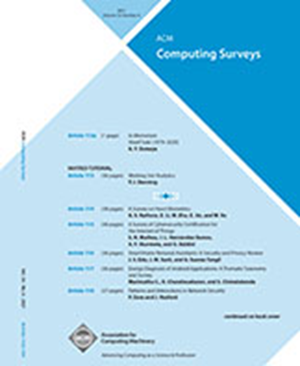Physics-informed Machine Learning for Medical Image Analysis
IF 28
1区 计算机科学
Q1 COMPUTER SCIENCE, THEORY & METHODS
引用次数: 0
Abstract
The incorporation of physical information in machine learning frameworks is transforming medical image analysis (MIA). Integrating fundamental knowledge and governing physical laws not only improves analysis performance but also enhances the model’s robustness and interpretability. This work presents a systematic review of over 100 papers on the utility of PINNs dedicated to MIA (PIMIA) tasks. We propose a unified taxonomy to investigate what physics knowledge and processes are modeled, how they are represented, and the strategies to incorporate them into MIA models. We delve deep into a wide range of image analysis tasks, from imaging, generation, prediction, inverse imaging (super-resolution and reconstruction), registration, and image analysis (segmentation and classification). For each task, we thoroughly examine and present the central physics-guided operation, the region of interest (with respect to human anatomy), the corresponding imaging modality, the datasets used for model training, the deep network architectures employed, and the primary physical processes, equations, or principles utilized. Additionally, we also introduce a novel metric to compare the performance of PIMIA methods across different tasks and datasets. Based on this review, we summarize and distill our perspectives on the challenges, and highlight open research questions and directions for future research.基于物理的医学图像分析机器学习
将物理信息整合到机器学习框架中正在改变医学图像分析(MIA)。整合基础知识和控制物理定律不仅提高了分析性能,而且增强了模型的鲁棒性和可解释性。本工作对100多篇关于pin专用于MIA (PIMIA)任务的论文进行了系统回顾。我们提出了一个统一的分类法来研究什么物理知识和过程是建模的,它们是如何表示的,以及将它们纳入MIA模型的策略。我们深入研究了广泛的图像分析任务,从成像,生成,预测,逆成像(超分辨率和重建),配准和图像分析(分割和分类)。对于每个任务,我们都彻底检查并展示了中心物理指导的操作,感兴趣的区域(相对于人体解剖学),相应的成像模式,用于模型训练的数据集,所采用的深度网络架构,以及所使用的主要物理过程,方程或原理。此外,我们还引入了一个新的度量来比较PIMIA方法在不同任务和数据集上的性能。在此基础上,我们总结和提炼了我们面临的挑战,并指出了未来研究的开放性问题和方向。
本文章由计算机程序翻译,如有差异,请以英文原文为准。
求助全文
约1分钟内获得全文
求助全文
来源期刊

ACM Computing Surveys
工程技术-计算机:理论方法
CiteScore
33.20
自引率
0.60%
发文量
372
审稿时长
12 months
期刊介绍:
ACM Computing Surveys is an academic journal that focuses on publishing surveys and tutorials on various areas of computing research and practice. The journal aims to provide comprehensive and easily understandable articles that guide readers through the literature and help them understand topics outside their specialties. In terms of impact, CSUR has a high reputation with a 2022 Impact Factor of 16.6. It is ranked 3rd out of 111 journals in the field of Computer Science Theory & Methods.
ACM Computing Surveys is indexed and abstracted in various services, including AI2 Semantic Scholar, Baidu, Clarivate/ISI: JCR, CNKI, DeepDyve, DTU, EBSCO: EDS/HOST, and IET Inspec, among others.
 求助内容:
求助内容: 应助结果提醒方式:
应助结果提醒方式:


